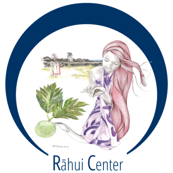About Us
Bringing together scientific and local knowledge to empower communities in managing their resources autonomously and sustainably.
Because local communities are best placed to care for their lagoons, the rāhui embodies a response that is deeply rooted in culture and locally driven in the face of environmental challenges.
This practice is regaining its full meaning today because the coral reefs of French Polynesia — which cover nearly 15,000 km², four times the land area — are increasingly under threat. Yet their role is essential: they protect the coasts, feed families, and are integral to the cultural identity of the territory. However, they are facing the impacts of climate change, overfishing, pollution, and urbanization.
Our role is to provide scientific support for these local dynamics, to help strengthen the autonomous and sustainable management of rāhui and other locally managed marine areas.



